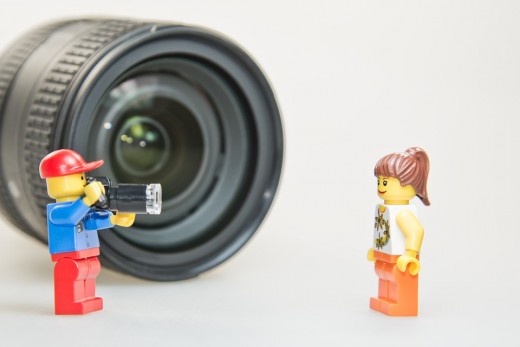How to Help a New Photographer Become Better

Teach but don't preach. Let newbies learn at their own pace
Let them write their own path

No one picks up a camera no matter how fancy or expensive it is and instantly becomes a great photographer just like Einstein didn't become a genius in one day. Let your new photography friends slowly get better by encouraging them and slowly teaching them the basics.
A new photographer is probably thrilled with their new camera and lenses along with all their new gear but the truth is that they more than likely do not know much about photography so that is where you come in.
You should start by mentoring them and encouraging them to begin with easy subjects that will also let them start to experiment with their new gear and slowly start to make better pictures one step at a time.
Stay away from the impulse of trying to teach them every single rule there is and instead teach them about exposure and focal lengths (f-stops and lens sizes). These are two simple lessons that they can understand like the larger the f-stop the less detail shown on the background and that a longer lens like a 200mm will "get" you closer to the subjects as opposed to a 80mm lens.
Start with simple subjects

Look for subjects everywhere

Don't' put their choice in equipment down. They probably spent the money in a less than ideal camera and lens combination without understanding how they work but to them they made a great deal and telling them that Canon is better than Nikon or that this or that prime lens is a much better one than the one they got from the factory.
Also stay way from explaining why they should not use the auto mode all the time and how using manual is the choice for pros. Take it slow and let them get fully acquainted with what they have before you break it to them that they could have probably made a better choice in lenses or cameras. They will learn this on their own eventually anyway.
Sure you probably have much better equipment plus a wide array of prime lenses and other fancy gear but keep in mind that you did not get all of this the first day.
As you grew you got to better understand what worked better for you and what gear best fit your shooting needs. Let them grow too at their pace.You can explain all the nuances of photography but do so slowly and one at a time. Guide them but don't push them to upgrade just yet or compare what you have to what they have.
Instead make them your shooting buddy and as you go along from shooting adventure to the next they will start to see the differences in style and results and start to learn more about the differences in lenses, shooting modes and other "nick knacks".
Pets and gardens make interesting subjects

Your only goal for the time should be to allow them to simply have fun while using the gear. If you give a child a brand new remote control car or really fancy toy which takes a while to master and hound them in how to make it do this or that without first letting just simply play with it , they may eventually just get tired and frustrated with the toy and you and will probably put the toy away and never use it again.
Even if their images are not that great at first and you can see obvious ways to improve them keep away from the "constructive criticism" that you are dying to offer and instead praise their efforts and along the way say things like " I wonder if you used this or that angle how would the photo have changed?".
Let them see their results and make the decisions or try new things on their own. This does not mean that you should not give them shooting advice but it does mean that you should let them come to you and ask first.
Point them to sources of instruction and information where they can, on their own, learn about how to improve their shooting , learn new ways of doing things, and read till their heart's content about all the exciting possibilities when you use manual mode and so on.
Flowers are easy to photograph

Ready to mentor?
Buildings are also simple , easy subjects

When mentoring someone who is just starting to get wet in photography it should all be about encouraging them and not showing them how much more you know. You did know everything when you first started so they won't either.
Allow them to grow, experiment and experience the art first and slowly encourage them to try new things, expose them to filters, macro, reflectors lighting set ups, digital manipulation and so on.
Show them the rule of thirds, the exposure triangle, balancing elements within the frame,leading lines, making silhouettes, framing, composition and the list goes on.
One rule per day is fine until they get comfortable with it and are ready to move on to the next one.
They need to have fun first and the love for photography usually follows all in due time.
Inanimate objects are great for starters

- 20 Composition Techniques That Will Improve Your Photos
There are no unbreakable rules when it comes to how you should compose your photographs. After all, who likes rules except for your old school principal or
© 2016 Luis E Gonzalez






